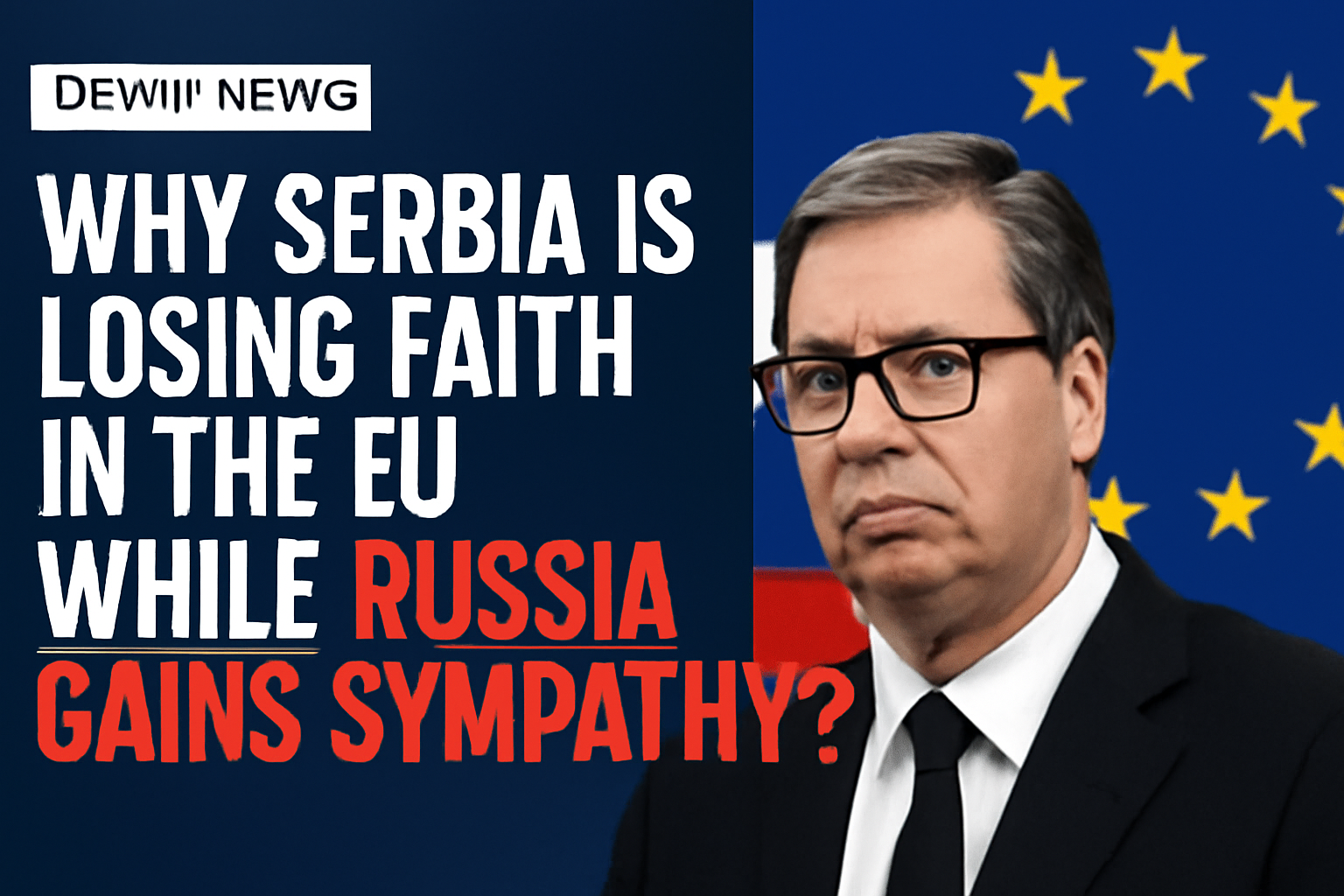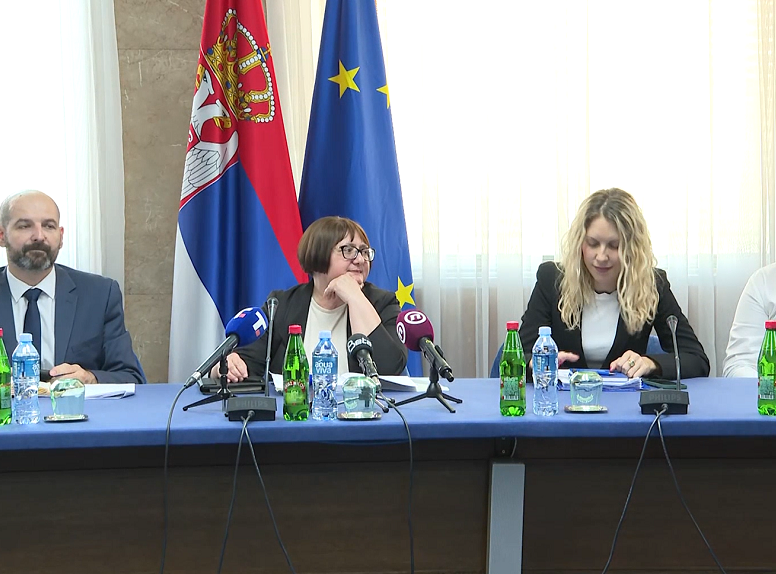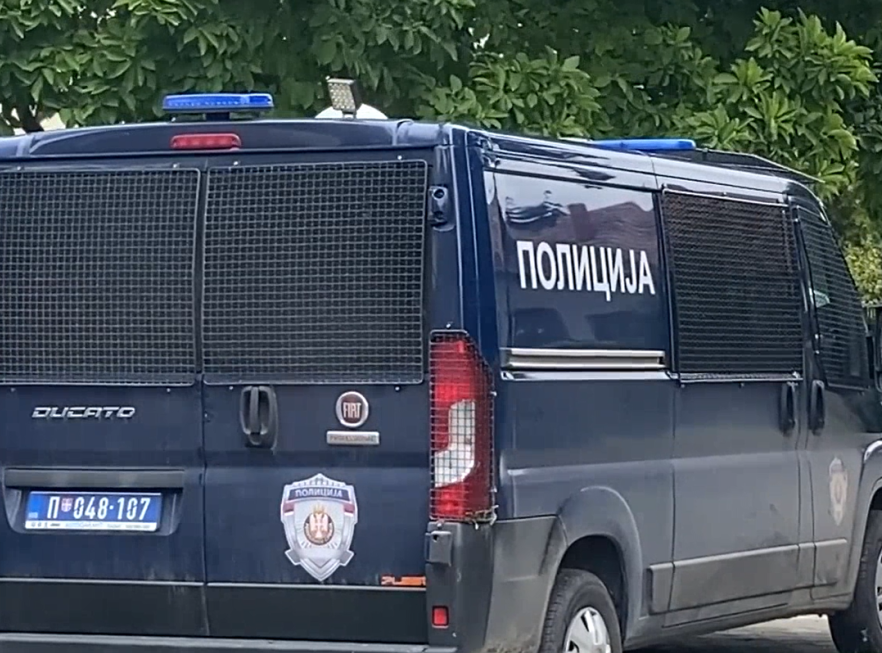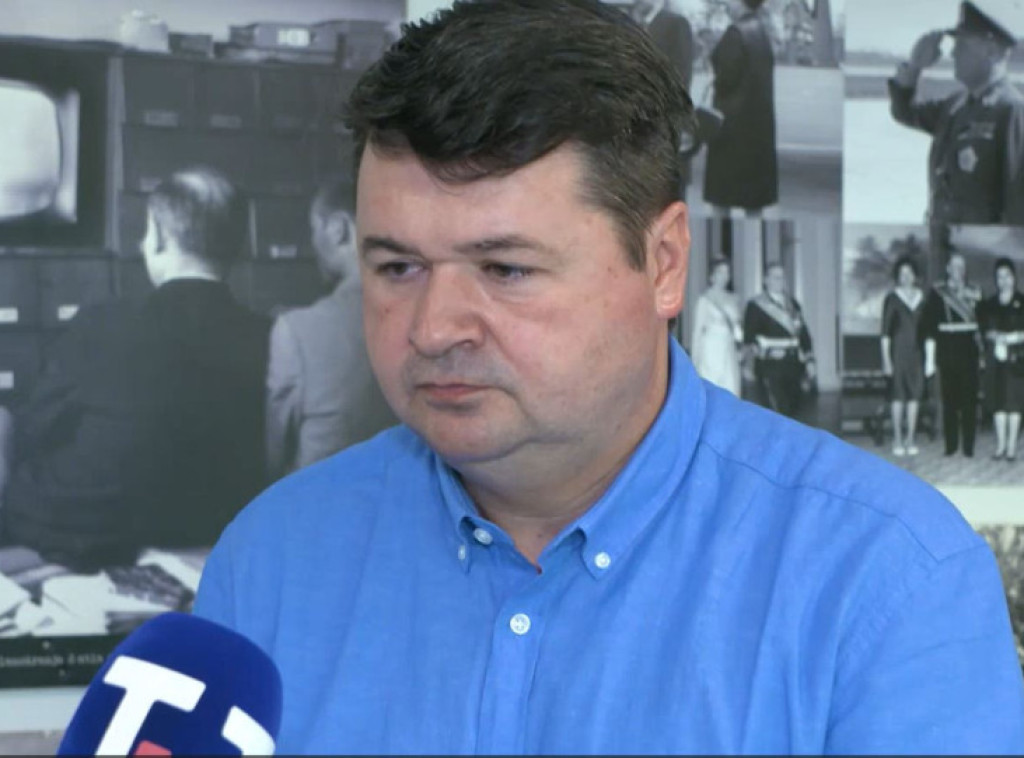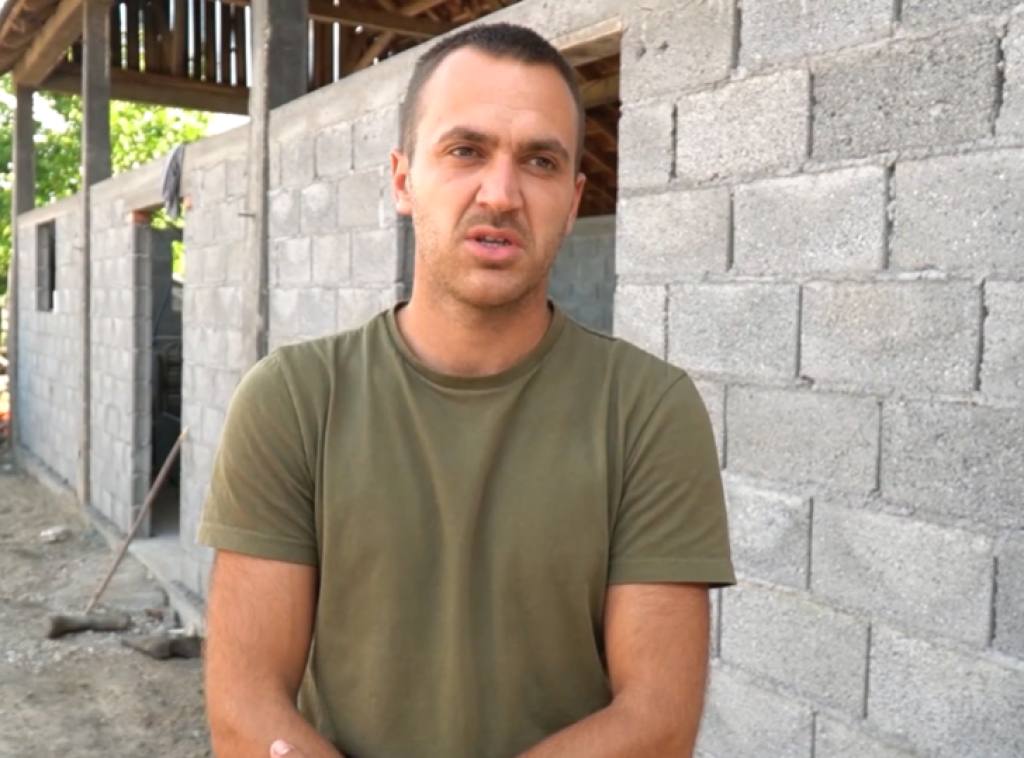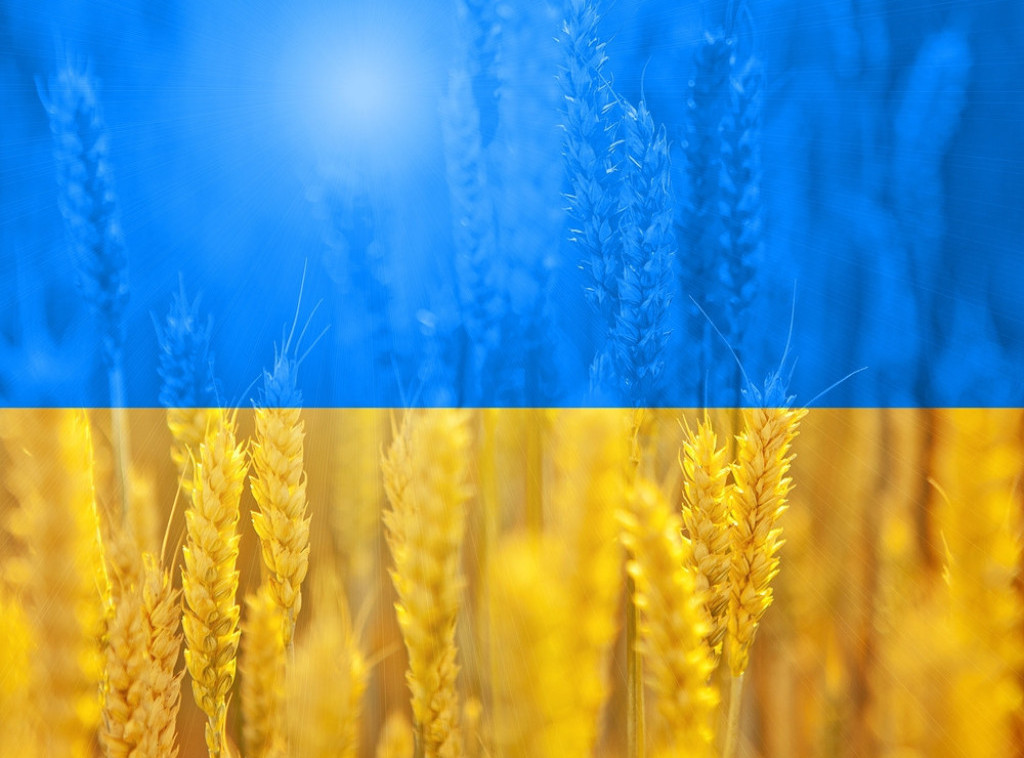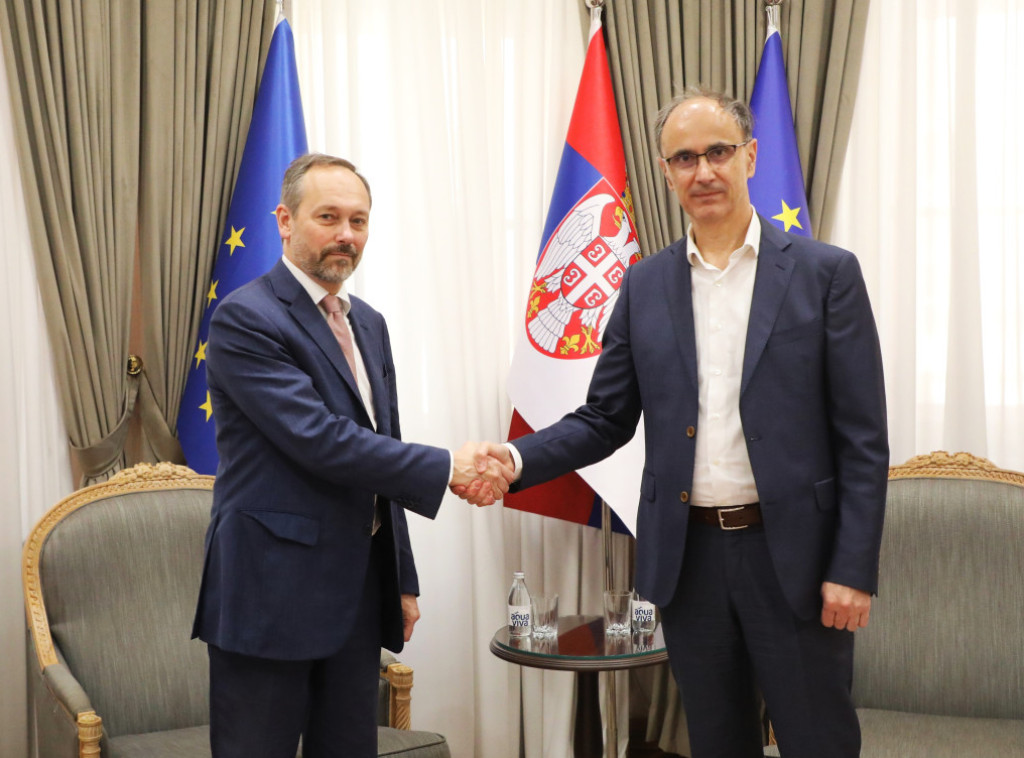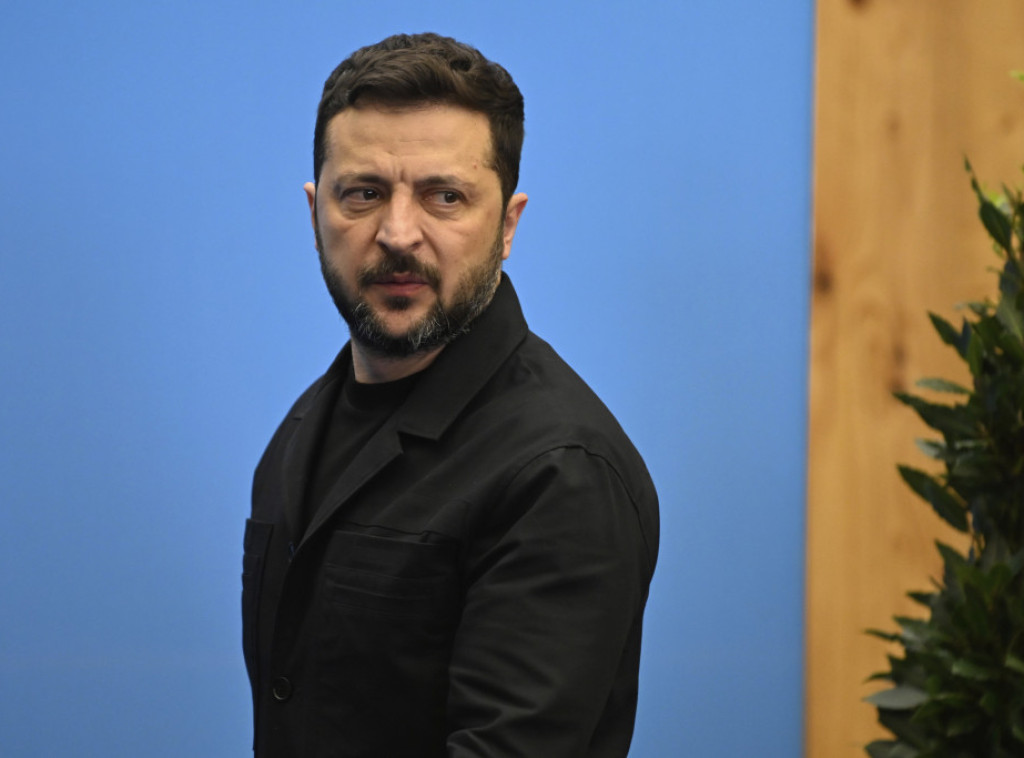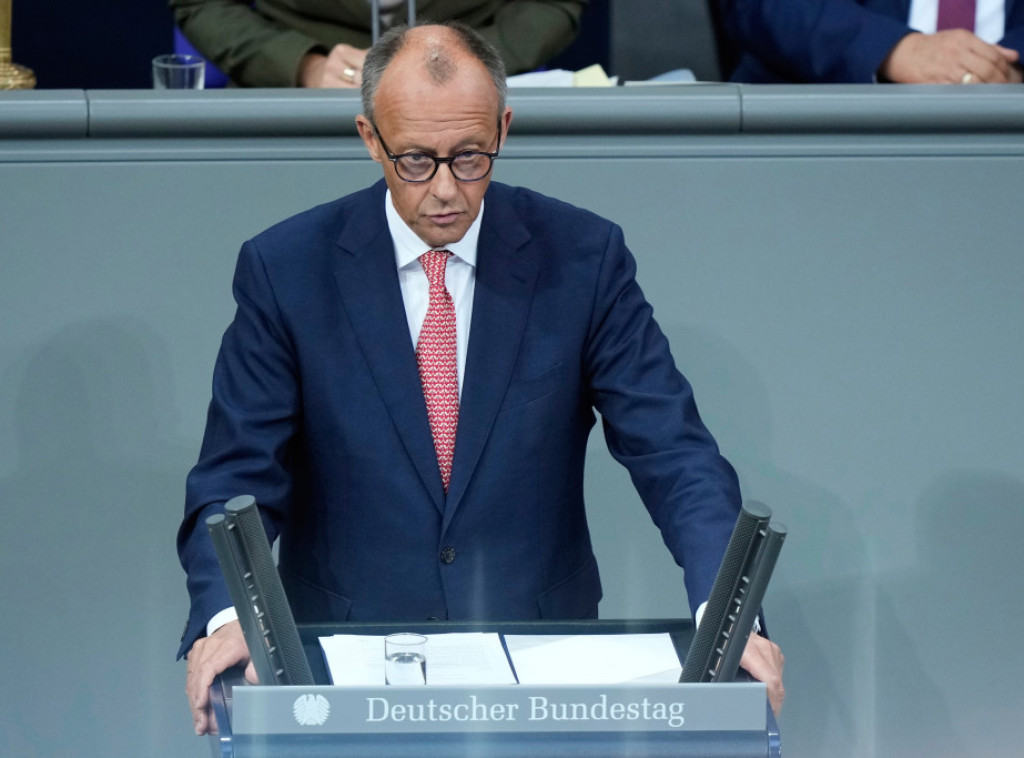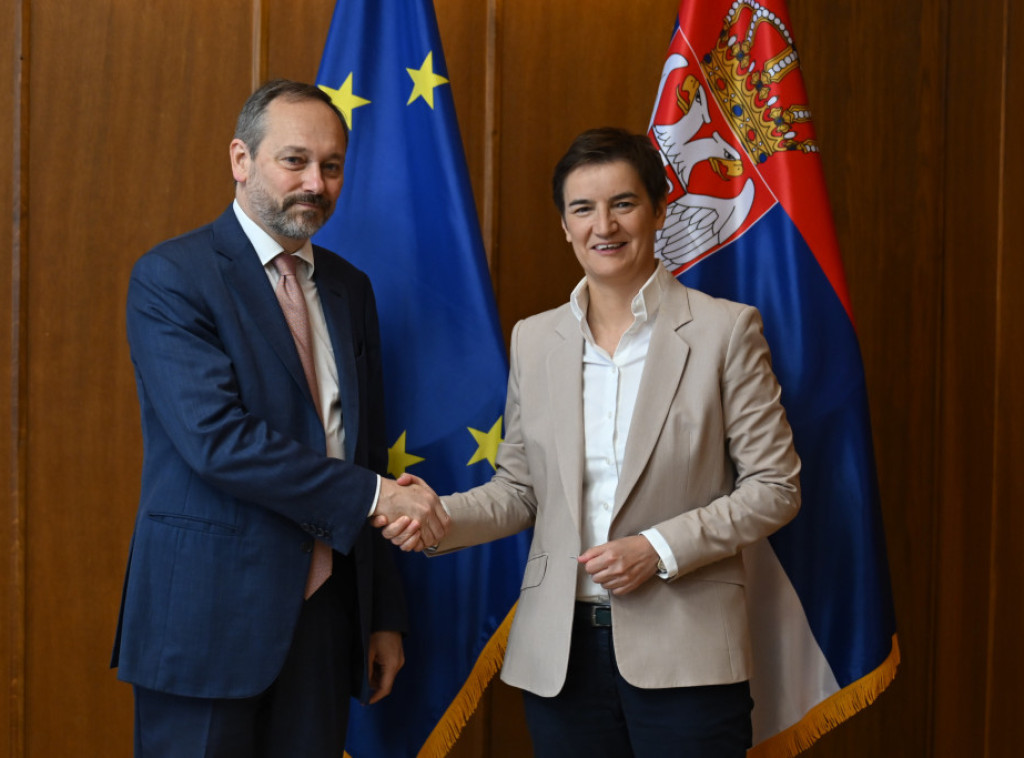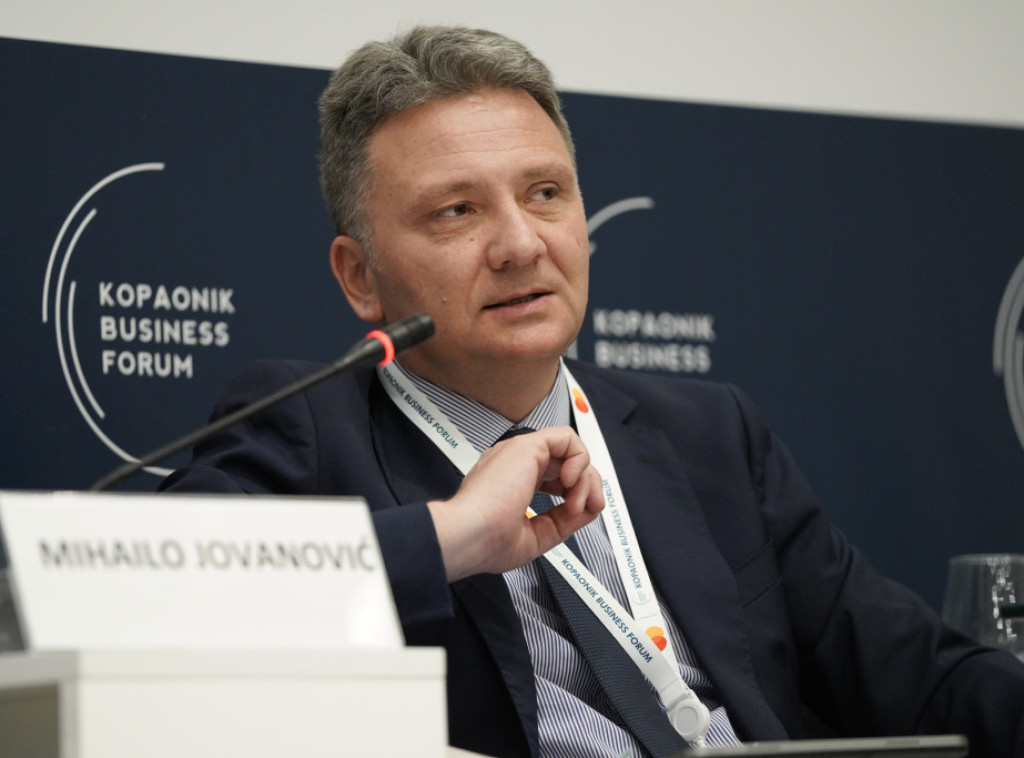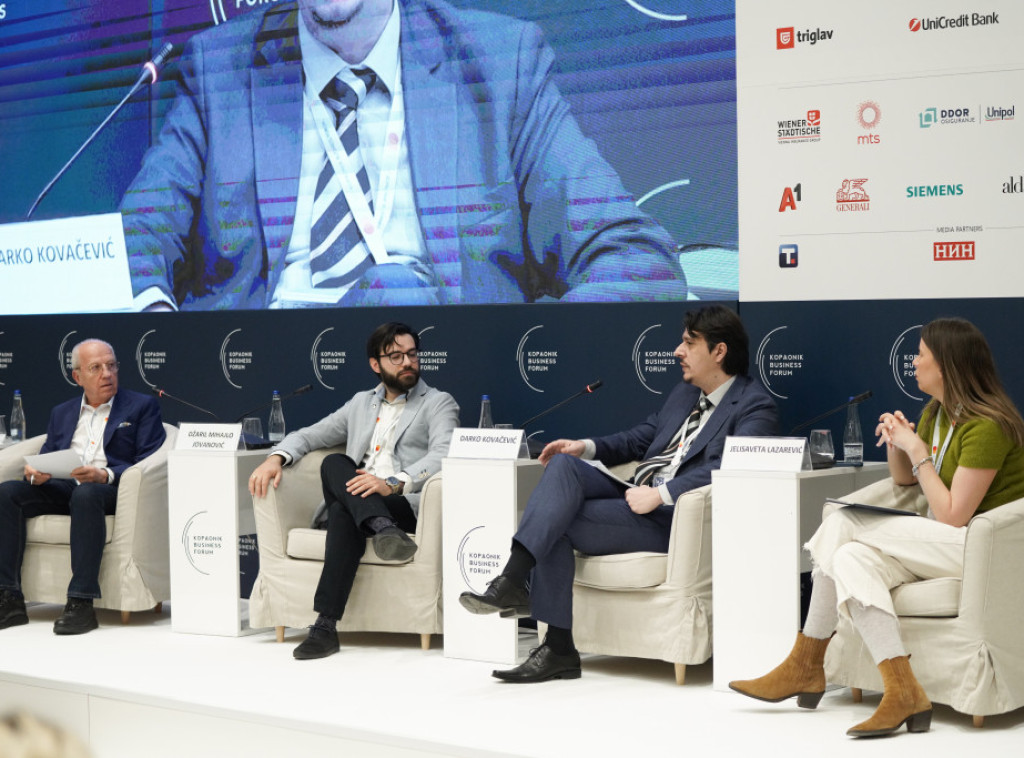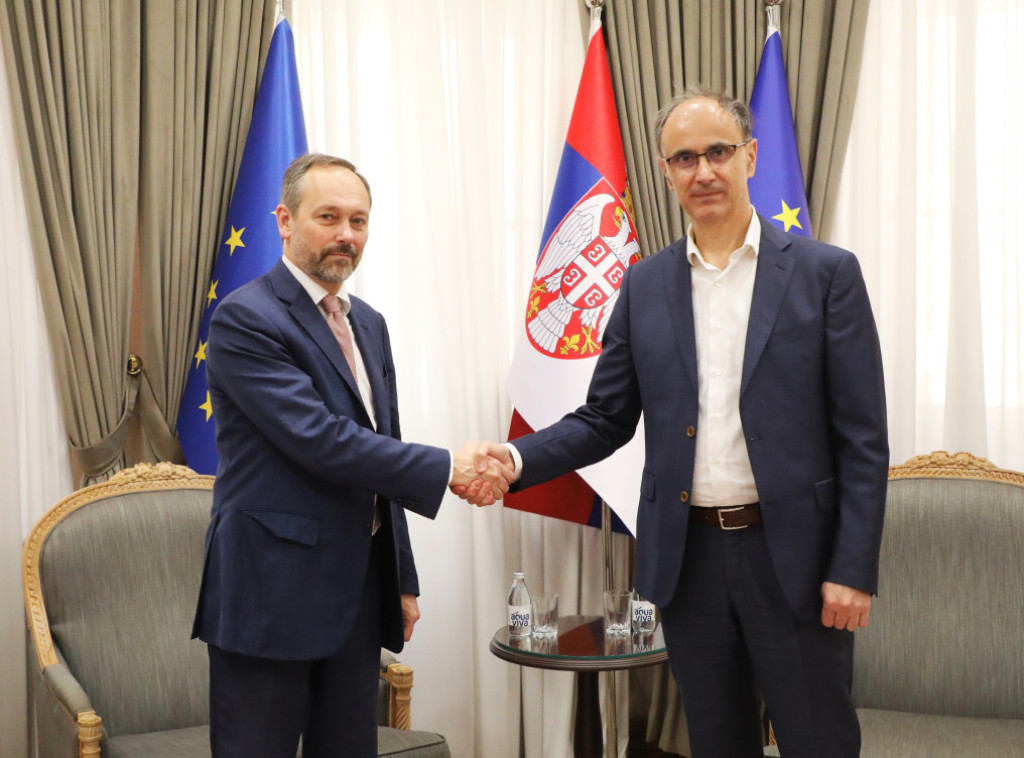Serbia at a Crossroads: EU Losing Faith, Russia Gaining Sympathy!
Have you noticed how Serbia is losing faith in the European Union, while Russia is gaining more and more sympathy? This is no coincidence! Fresh polls show that less than half of Serbs want EU membership, while sympathies towards Moscow are rising as if Putin himself is a superhero.
The Decline of EU Support – What’s Going On?
Just ten years ago, 43% of Serbs had a positive view of the EU. Today, that number has dropped to only 32%! And that’s not all – about 40% of citizens would support joining the EU, while a whopping 52% say “no.” Even students, who protested for months over the tragedy in Novi Sad, did not wave EU flags. European officials notice this but seem clueless about what’s really happening on the ground.
Why?
Because the EU fails to address key issues. Serbia is under pressure to recognize Kosovo as an independent state, which is unacceptable to most Serbs. While the EU demands normalization of relations between Belgrade and Pristina, talks are stalled, and Serbian institutions on the ground are being shut down. It’s like asking someone to accept losing part of their identity.
Russia as an Alternative?
At the same time, Russia is seen in Serbia as a powerful ally standing up to the “arrogant West.” Nearly half of Serbs believe the Russian invasion of Ukraine is justified – the highest percentage in the region. Russia is the only European country that has not imposed sanctions on Moscow, and many Serbs see it as a protector of Serbian interests.
Economy and Reality
Although the EU is Serbia’s main economic partner, providing 4 billion euros in grants over the last decade, this does not change public opinion. People see that the EU does not sufficiently support their protests or solve their problems. On the other hand, Russia is perceived as a country with similar values – conservative, family-oriented, and anti-LGBT rights.
What Do Experts Say?
Political analysts say the EU has lost credibility in Serbia because it cannot clearly position itself amid political polarization. Also, linking EU integration with Kosovo recognition only increases Euroscepticism. Meanwhile, Russian influence and sympathies grow as Russia presents itself as the protector of the “Serbian world” and traditional values.
Conclusion?
Serbia is at a crossroads. Will it continue on the path to the EU with all its conditions and pressures, or turn to Russia and conservative values? One thing is clear – this is not just a political question but a deep question of identity and the country’s future.
What about you? Do you think Serbia should join the EU or stay loyal to Russia? Or maybe there’s a third way? Drop a comment and let’s see who’s on which side – time to have some fun or spark a heated debate!





